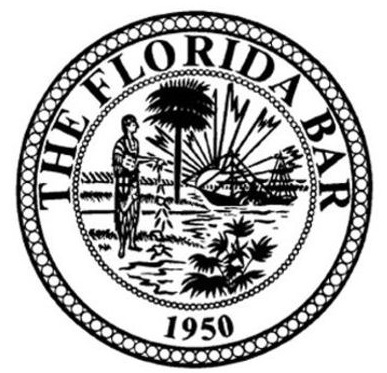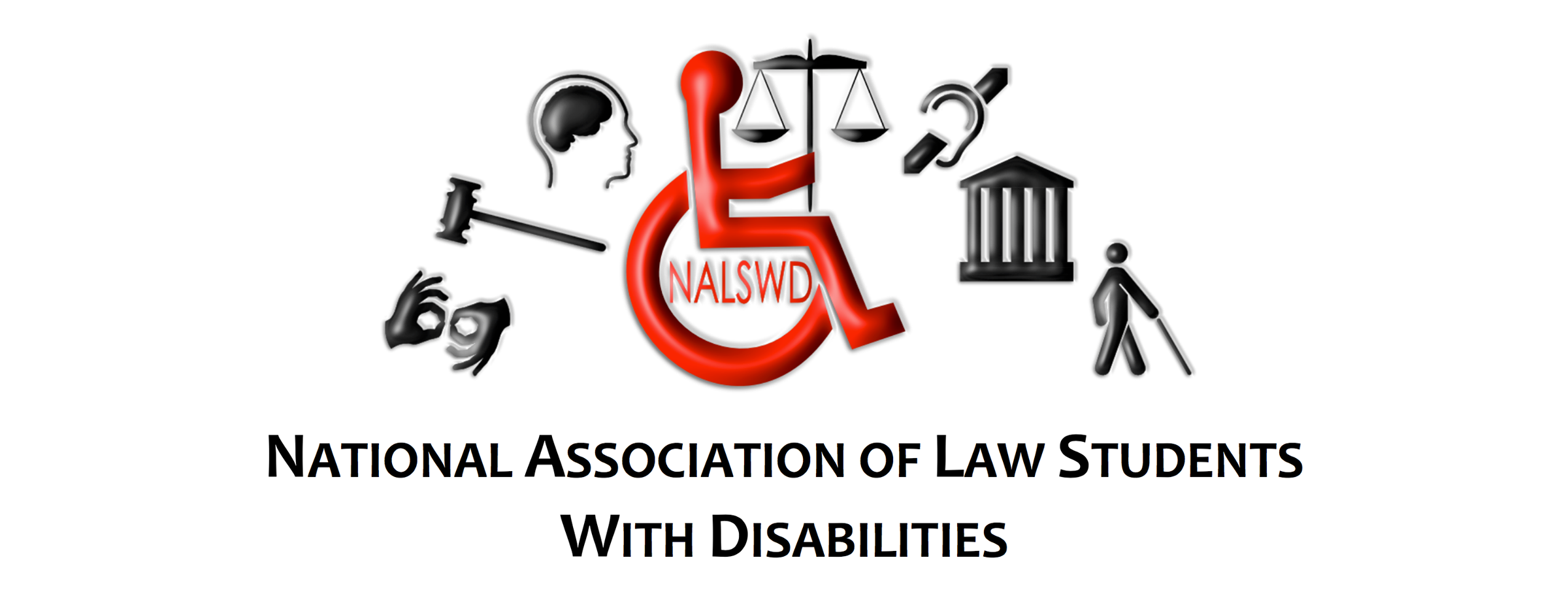Top Resources for Lawyers and Law Students with Disabilities
The needs of lawyers with disabilities are often overlooked, but if you’re an attorney or law student who’d like to learn more about options, support groups, and accommodations then you’ve come to the right place! I’ve started compiling a list of top resources for lawyers with disabilities (and for employers of attorneys with disabilities). This list isn’t all-inclusive. In fact, I’d love for you to let me know of any quality resources I missed!
Resources for Lawyers with Disabilities
American Bar Association (ABA) Commission on Disability Rights
The ABA has a huge resource section for legal employers, attorneys, law students, and the public. The Commission on Disability Rights has resources covering everything from legal employment, mentoring, disability law news, and law student opportunities. This is definitely the top website I found on issues facing attorneys with disabilities. It also includes links helpful articles and white papers like:
Stuart Pixley’s “Lawyering with Challenges: Disability and Empowerment,” published in the ABA Center for Professional Responsibility’s journal, The Professional Lawyer
Cheryl L. Anderson’s “Law Office Management: The Business Case for Disability Diversity in Legal Employment,” published in the Illinois Bar Journal
Michele Gatto’s “Top Ten: Disability Inclusion,” included in the Association of Corporate Counsel’s website
Jane Kow’s “Providing Reasonable Accommodations for Attorneys and Other Legal Professionals with Disabilities”
Deaf and Hard of Hearing Bar Association (DHHBA)
DHHBA is an “organization of deaf, hard of hearing, and late-deafened attorneys, judges, law school graduates, law students, and legal professionals.” Their website is pretty sparse, but their Facebook page has spurts of activity. An upcoming 2016 event is group admission ceremony at the U.S. Supreme Court. Congratulations!
The Disability Rights Bar Association (DRBA)
DRBA, previously known as the Association of Disability Rights Counsel, is “is an online network of attorneys who specialize in disability civil rights law. Through the DRBA, disability rights attorneys share information and strategies, coordinate litigation and other legal representation strategies, and mentor lawyers and law students who are new to disability rights practice. The DRBA helps lawyers and individuals with disabilities pursue better cases, make more effective arguments, and understand developments in disability rights law and practice.” Although DRBA has information for attorneys and law students with disabilities, its primary mission is to support lawyers with practicing disability civil rights law.
The Florida Bar
Kudos to the Florida Bar, which the most comprehensive information for attorneys with disabilities that I found, other than the ABA. Their website covers Florida state court information, providing accommodations, general resources on disability law for all legal professionals, accessibility of electronic documents, disability resources at Florida law schools, recruitment information and support for law students and employees with disabilities, informational guides and mentoring online, a 2006 survey of Florida attorneys with disabilities, and much more. Even better, the Florida Bar keeps its resources updated—it had been revised just a few months before I checked it.
The Job Accommodation Network (JAN)
JAN provides free, confidence, one-on-one guidance to both employees and employers on workplace accommodations and disability employment issues. JAN’s “Job Accommodations for Lawyers with Disabilities,” part of its Effective Accommodation Practices (EAP) Series, gives a quickie overview of some types of accommodations that might be helpful for attorneys with disabilities. Although the resource doesn’t have much depth, it does give employers (and colleagues) a sense of how to assist, depending upon the impairment or disability. Again, this is a 2010 resource that needs updating.
National Association of Attorneys with Disabilities (NAAD)
NAAD’s mission is to be a national voice for lawyers with disabilities. NAAD’s website isn’t much, but its Twitter feed is very active with current news on the Americans with Disabilities Act (ADA), hiring information, litigation, reasonable accommodations, diversity and inclusivity, advocacy, and related topics. The NAAD website does have a substantial and up-to-date resources page, with good information on mobile apps and other tools to assist attorneys and others with visual impairments and other disabilities.
National Association of Blind Lawyers (NABL)
NABL is a division of the National Federation of the Blind (NFB). NABL’s website is basically a placeholder. The real assistance is its Blind Law Mailing List, a “a resource for blind lawyers, paralegals, and law students, those blind people interested in a career in the legal profession, and others interested in techniques used by blind attorneys in practice. Discussions focus on blindness-related aspects of the practice of law, legal employment, technical resources for the legal profession, law school admissions, and law school admissions tests and bar examinations.” Communications are available only to subscribers; complete the contact form to subscribe.
National Association of Law Students with Disabilities (NALSWD)
“NALSWD aims to support the growing number of law students with disabilities by providing a safe and supportive community to connect with other students with disabilities from across the country, networking with lawyers with disabilities, information about career opportunities, and advice on succeeding in law school and the legal profession.” They’re an energetic group, with active social media pages, a newsletter, a blog, and an annual conference. And their resources page is the largest one I found aimed at law students. It contains information on LSAT accommodations, law school applications, bar exam accommodations, employment and career information, disability law, disability rights organizations, and a whole lot more. A big plus was the scholarship and fellowship information.
The Texas Bar Standing Committee on Disability Issues
The Disability Issues Committee “exists to provide support and resources for Texas attorneys and law students with disabilities, members of the public who are affected or know someone who is affected by a disability, and all who are interested in helping to improve the lives of individuals with disabilities.” Their website provides information on mentoring of law students with disabilities, pro bono disability rights law opportunities, and extensive online resources.
The U.S. Equal Employment Opportunity Commission (EEOC)
“Reasonable Accommodations for Attorneys with Disabilities” is an EEOC fact sheet that provides great information about reasonable accommodations, including the perception that reasonable accommodations may be too expensive to provide. The EEOC provides attorneys with tips on how and when to request a reasonable accommodation, even specifically addressing the job application scenario—one of many different scenarios covered. This fact sheet needs to be updated; legal services and the working world have changed a lot since it was published in 2011.
Washington Attorneys with Disabilities Association (WADA)
WADA is “is an organization of Washington State attorneys with and without disabilities as well as law students with and without disabilities, which to work together to educate and enlighten those within and outside of the profession about the many barriers to the practice of law encountered by individuals with disabilities, to promote the elimination of those barriers, and to support each other and the state’s legal profession in improving meaningful opportunities for attorneys and other individuals with disabilities in all facets of society.” WADA’s website needs updating.
Resources for Attorneys with Disabilities in Canada and the U.K.
The Law Society: Lawyers with Disabilities Division (U.K.)
LDD promotes access, employment, networking, mentoring, and more for law students, retired solicitors, paralegals, law lecturers and practicing solicitors. The website has an active news section, with practice tips, career tips, and inspiring profiles on lawyers with physical disabilities as well as disabilities (like epilepsy, dyslexia, and mental health issues) that are less immediately apparent.
Law Society of Upper Canada Disability Resource Centre Recruiting and Hiring Lawyers with Disabilities (Canada)
The Law Society provides a Disabilities Resource Centre with information on recruiting and hiring attorneys with a wide range of challenges and disabilities. The resource center has downloadable pdf reports on increasing access to the legal profession and equal rights, as well as information on a mentoring program for law students. Also still worth a look is the 2005 Report of the Disability Working Group on access to the profession.
Law Institute Victoria (Australia)
I didn’t find a ton of information here, but except the May 2010 special edition of the Law Institute Journal, which focuses on employment of lawyers with disabilities and the benefits they bring their employers. Access to most of the edition is members-only, but Jason Gregory’s article “Lawyers with disabilities: Ready, willing and able” is publicly accessible.
What resources do you recommend?















